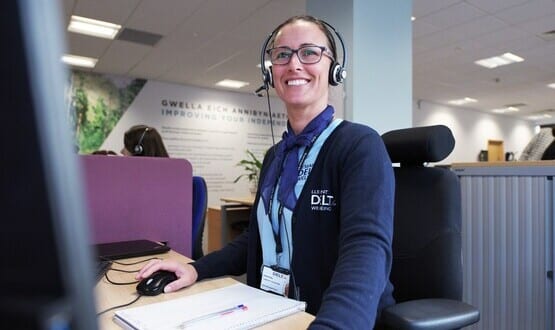Lives not improved by telehealth
- 27 February 2013

Telehealth does not improve quality of life for patients with long-term conditions, according to a new report on the Whole Systems Demonstrator programme.
The paper, published in the British Medical Journal, reports on an evaluation of the three WSD pilot sites in Kent, Cornwall and Newham.
These were set up by the Department of Health to find evidence to support the use of telehealth and telecare technology.
However, the new paper not only says that they were not effective but that more research should be done on the potentially harmful effects of telehealth on patient wellbeing.
Researchers from a number universities found that telehealth did not improve quality of life or psychological outcomes for patients with chronic obstructive pulmonary disease, diabetes or heart failure, over12 months.
“For long term conditions, telehealth has been promoted to reduce healthcare costs while improving health related quality of life by facilitating self-monitoring with remote surveillance by healthcare professionals,” their joint report states.
“Evidence for the benefits of telehealth is ambivalent, with little empirical evidence on benefits on psychological outcomes.
“Our findings strongly suggest no net benefit from telehealth; therefore, it should not be used as a tool to improve health related quality of life or psychological outcomes.”
The WSD programme was set up in May 2008 as a randomised control trial of telehealth and telecare. More than 6,000 patients in three areas of England were involved and filled out three questionnaires at different stages between May 2008 and December 2009.
The collaboration of researchers analysed the results of the questionnaires and found that while quality of life, anxiety, and depression were linked with poorer outcomes, the evidence for the effect of telehealth on these indicators was unclear.
The report criticises previous studies that have looked at the impact of telehealth on quality of life.
“At least seven systematic reviews have examined this effect on health related quality of life in heart failure and while most conclude that telehealth is beneficial, such inferences are not supported by the evidence they present,” it says.
The authors add that although there is little evidence yet, there is a possibility that telehealth could be harmful for patients and called on more research regarding this.
“Telehealth could reduce health related quality of life and psychological wellbeing owing to the increased burden of self-monitoring, concerns about intrusive surveillance, a perceived lack of user friendliness, or the undermining of the traditional therapeutic relationship,” the report explains.
“More research is required to understand the many potential beneficial and harmful mechanisms by which telehealth could affect patient reported outcomes.”
Reports on the outcome of the WSD programme have been consistently delayed. The government rushed to publish ‘headline findings’ from one study in December 2011 to support the launch of the 3millionlives campaign to kick-start the industry.
The headline findings, contained in one paragraph of a press release, claimed that "correct use" of telehealth can deliver reductions in A&E visits, emergency admissions and mortality rates.
However, fuller reports have painted a more nuanced picture, and the evidence to date has failed to convince many of the benefits of the technology. EHealth Insider recently reported that the 3millionlives ‘pathfinder’ projects are unlikely to recruit their target of 100,000 patients this year.
Further benefits, such as cost savings in regards to hospital activity, have yet to be identified.




